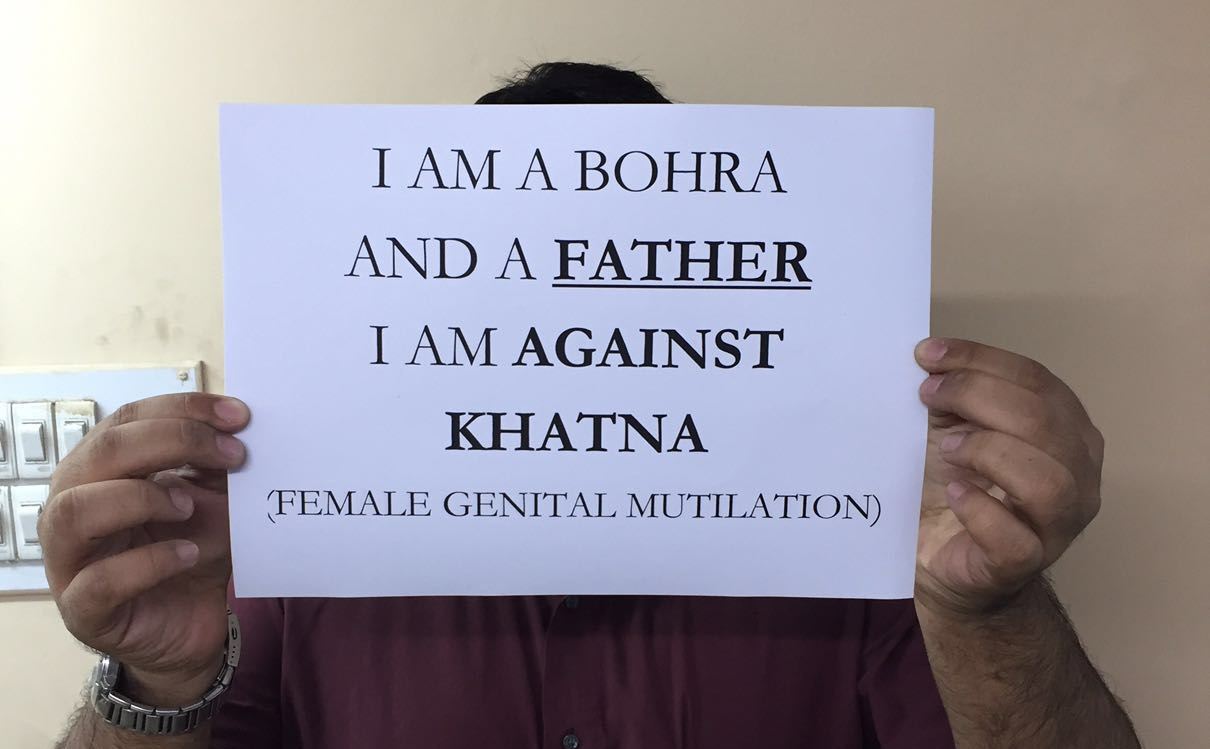By Priya Ahluwalia
Priya is a 22-year-old clinical psychology student at Tata Institute of Social Sciences – Mumbai. She is passionate about mental health, photography and writing. She is currently conducting a research on the individual experience of Khatna and its effects. Read her other articles in this series – Khatna Research in Mumbai.
Khatna, by virtue of being related to female anatomy, is often categorized as a women’s issue. However, one must also remember that it is a practice performed on uninformed and unconsenting children. We must move beyond defining it as a child or a woman being violated and look at it as a human being who is being wronged, and therefore the most comprehensive way to describe it would be a human rights violation.
Despite it being a human rights issue, it appears as if not many people are willing to speak up against it, even though all people, especially men, need to do so. Within the structure of the Indian patriarchy, men enjoy power not only by virtue of their gender but also by their sheer number in our country. Therefore men can use their position of power to effectively tilt the weights in favor of women who are speaking against Khatna.
Although, ideally we expect all men to support us in the endeavour to end Khatna, we should also attempt to understand their hesitancy. Within the Indian patriarchal family structure, the woman is seen as the mistress of the house, in charge of children, while men are seen as masters for all things outside the domain of the house. Therefore any attempt by men to venture into the discussion concerning women’s bodies is seen as ill-mannered and a gross violation of clearly demarcated gender roles.
During my research, I met a father who became aware of Khatna and its consequences because he had daughters and therefore vehemently opposed it. He narrated the daily struggle of convincing his own mother against this practice. However, like many other men before and many after him, he was unsuccessful in dissuading the women in his family from continuing it on his daughter. He was blindsided by his mother and given the blanket argument that she knows better for a woman by virtue of herself being a woman.
Yet research has shown that with increasing education on khatna, more men are willing to campaign against it. Still, the onus of initiating a conversation on khatna among others lies with the women. Communication between men and women, especially husband and wife, is crucial for the discontinuation of Khatna. A woman I interviewed who had undergone Khatna took this initiative and began a conversation with her husband, which gave her immense strength and helped her protect their daughter from falling into the clutches of tradition. Research too corroborates the same: if more men are are part of the decision making process, the less the likelihood that Khatna would be performed on the girl.
The research linked above shows that men who wish to speak up are held back by their limited knowledge on the effects of Khatna.They are unaware of what is removed and what its ramifications are. The primary reason for this ignorance is the lack of conversations about women and their health among family members. This hesitancy to talk about women in front of men comes from the idea that women are equivalent to the family’s honour, therefore talking about aspects of their sexuality may be seen as a violation, thereby a disgrace, to the family’s honour. However, we must move beyond the archaic concept and understand that creating awareness about the ill effects that Khatna has on a woman’s body in no way defiles a family’s honour. After all, what honour can reside in pain?
Conversations about Khatna must begin, questions must be asked and collaborative measures between men women must be taken to put an end to this practice. There are several ways to oppose this practice. You may choose to speak out or you may to choose to silently protest; however, if active measures are not taken to resist it, then there is passive consent for the continuation of khatna, and we must understand that every time such consent is given, it means another child is being harmed. Therefore, let us come together for the children and do whatever we can, wherever we can.
To participate in Priya’s research, contact her on This email address is being protected from spambots. You need JavaScript enabled to view it.

